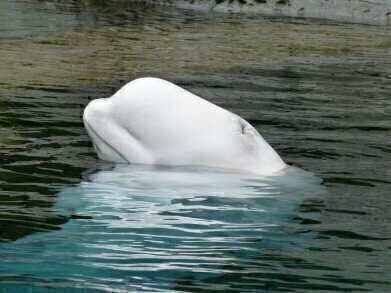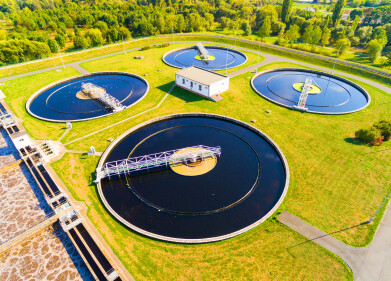Water/Wastewater
How Is an Oil Pipeline Threatening Endangered Whales?
May 16 2017
An Alaskan oil company has announced its second leak within six months, causing concerns that the habitats and survival of endangered whales in the region could be at risk. The company in question, Hilcorp Alaska, announced the leak on April 1st, sparking speculation that the alarm was an April Fools’ Day hoax.
Unfortunately, however, the report was genuine and oil has been draining from an offshore pipeline into the Cook Inlet in Alaska, just south of Tyonek. The spill is believed to have affected the 340 beluga whales which inhabit the area.
No April Fools prank
Experts were initially incredulous at the announcement from Hilcorp, believing the timing of the leak (on April 1st and just a few months after another of their pipelines sprung a leak late last year) meant it was a hoax.
“At first, I hoped that news of this latest oil leak was an April Fool’s joke because it seemed like Hilcorp couldn’t spring another leak so soon,” explained Miyoko Sakashita, Director of Ocean Programs at the Center for Biological Diversity (CBD). “We’re really worried about what this means for Cook Inlet belugas with the double whammy of an oil spill and gas leak in the same season.”
Unrelated to the December leak, the Cook Inlet pipeline is currently being run at reduced pressure and the associated platforms have been deactivated on a temporary basis. While the company has estimated the spill to constitute less than 10 gallons, conservationists believe this to be far too optimistic and the extent of the damage is as yet unknown.
Sophisticated online turbidity technology is advancing all the time, but such water quality monitoring is generally reserved for the reservoirs and lakes which provide our drinking water. Providing a comprehensive overview of the quality of the water in an area as big as the Cook Inlet is an altogether more difficult proposition.
A troubled history for the beluga
As long ago as 1999, conservationists were levying the authorities to include the Cook Inlet beluga whale as an endangered species (and therefore under the protection of the Endangered Species Act, 1973). Initially, the National Marine Fisheries Service would only denote the species as “depleted”, not “endangered”, prompting further campaigns from concerned organisations and civilians.
In 2006, a citizen’s petition was filed to amend the ruling, with a Fisheries Service proposal following the next year and a CBD lawsuit for quick response the year after that. Finally, in 2009, the species was recognised as endangered.
Notwithstanding the ruling, Alaskan authorities appealed to have it changed back – a plea that was ultimately rejected in 2011. Two million acres were given over as habitat for the species and were supposed to be protected by federal law. However, just two years later, the Service granted permits for oil and gas companies to plumb the depths of those acres, thus violating the Endangered Species Act and the Marine Mammal Protection Act, among others.
In addition to contending with the occasional oil and gas pipeline leaks, whales also find themselves under threat from plastic pollution all over the globe. Earlier this year, the Service released the final draft of their recovery plan to save the whales. Mention of removing the pipeline was conspicuous by its absence.
Digital Edition
IET 34.2 March 2024
April 2024
Gas Detection - Biogas batch fermentation system for laboratory use with automatic gas analysis in real time Water/Wastewater - Upcycling sensors for sustainable nature management - Prist...
View all digital editions
Events
Apr 30 2024 Melbourne, Australia
Apr 30 2024 Birmingham, UK
May 03 2024 Seoul, South Korea
May 05 2024 Seville, Spain
May 06 2024 Minneapolis, MN, USA


















